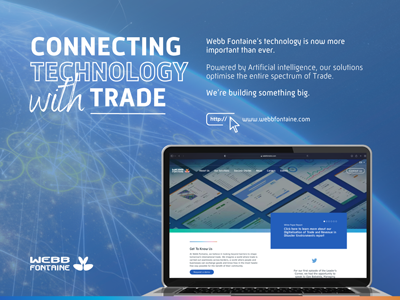The WCO launches its new strategic planning cycle
24 February 2021
By the WCO SecretariatIn December 2019, the WCO Policy Commission clearly expressed the need to strengthen the linkage between the WCO Strategic Plan, a document that sets the objectives and concrete targets to be met by WCO Members over a three-year period, and the Environmental Scan, which offers an annual view of the main global trends currently impacting Customs’ operations or which could affect them in the future. In addition, through various WCO working bodies, Members have sought the use of a forward-looking methodology to prepare more effectively for the upcoming challenges and opportunities facing the Organization.
Strategic foresight
The future is difficult to predict, as clearly demonstrated by the COVID-19 pandemic. However, this unpredictability is not an excuse to be unprepared, especially now. Most observers agree that many managers and decision-makers from the private and public sectors could have better prepared their organizations to respond to the current health crisis and the myriad and complex issues it has raised.
Although strategic foresight is still a relatively unknown concept within Customs administrations, it could represent the way forward by ensuring that Customs is equipped with the necessary regulatory and technical tools to respond adequately to a wide range of plausible futures. To quote the Organisation for Economic Co-operation and Development (OECD), “strategic foresight is a structured and systematic way of using ideas about the future to anticipate and better prepare for change. It is about exploring different plausible futures that could arise, and the opportunities and challenges they could present. We then use those ideas to make better decisions and act now.”[1]
The strategic planning cycle which recently commenced at the WCO has this very objective in mind: using foresight methodologies that enable the Organization to predict the future more accurately, thus ensuring that Customs and the WCO keep pace with the changing environment and continue to serve economic operators and governments.
A WCO strategy clearly linked to the global environment
To implement this approach, a document presenting a variety of potential scenarios and Customs’ response to each of them will be produced. It will take the form of a new type of WCO Environmental Scan that will cover a three-year period and will feed directly into the Strategic Plan to be established for the period 2022-2025. WCO Members and the Secretariat will work together in drafting the document and will also consult with private sector representatives. To that end, in November 2020, the WCO Secretariat held a first round of four virtual regional meetings, with two more planned for the remaining regions in 2021. Separate meetings also took place between the WCO Secretariat’s management team and the members of the WCO Private Sector Consultative Group in January 2021.
The Strategic Plan 2022-2025 will be developed on this basis, with the aim of setting priorities and targets for the Customs community. The WCO approach can be summarized as follows:

The next Environmental Scan and the Strategic Plan 2022-2025 will enable the WCO Secretariat and WCO Members to commit jointly to specific shared targets. The underlying objective is to reinvigorate the Customs community and ensure that it moves forward, in harmony, to meet anticipated and unforeseen challenges.
The new Environmental Scan will be presented for adoption to the June 2021 Policy Commission and Council. The Strategic Plan 2022-2025 is expected to be endorsed one year later, at the June 2022 Policy Commission and Council.
More information
http://www.wcoomd.org
